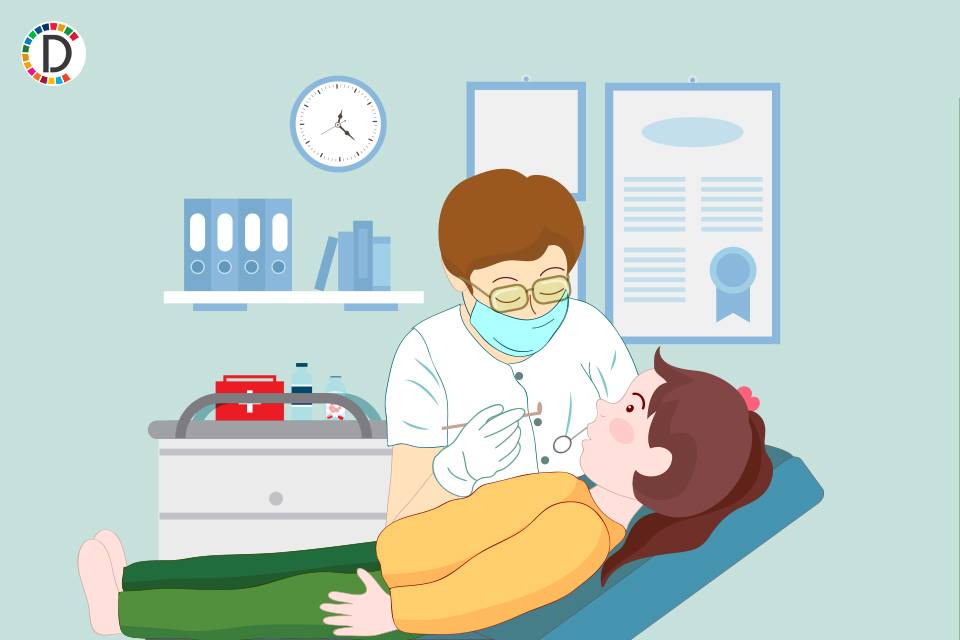2 Indian companies win funding for innovative pandemic response efforts

- Country:
- United Kingdom
Two Indian companies are among leading global entries to win funding under the Trinity Challenge, a coalition of 42 organisations working towards protecting the world from future pandemics, by using data, analytics and digital tools.
Khushi Health: Data-Driven Response to COVID-19 and VaccineLedger: Ensure quality and safety of the vaccines are among five joint third prize winners to be awarded USD 660,000 each in pledged funding announced at a ceremony on Friday.
The overall winner of the first prize worth USD 1.8 million was Participatory One Health Disease Detection (PODD) from OpenDream in Thailand, which turns farmers into disease detectives to serve as a frontline surveillance system, to prevent disease spill-over from animals.
''It was crystal clear at the beginning of this pandemic that the world had a lack of data, a lack of access to data, and a lack of interoperability of data, presenting a challenge. While others talked, we took action," said Dame Sally Davies, Chair and Founder of The Trinity Challenge (TTC).
"The solutions we have discovered in the course of the Challenge will be a link between systems and countries... The response we have received has been overwhelming. It delivers on our members' early vision, that a smarter, more cross-sectoral approach to data and analytics is key to building an effective, affordable and scalable response to the threat of infectious diseases," she said.
Khushi Health is led by Ruchit Nagar – co-founder and director of Khushi Baby in Rajasthan – and equips community health workers with a suite of digital solutions. This includes dashboards to show where infection rates are high and helps with referral systems, enabling community health workers to serve citizens at high-risk for COVID-19.
VaccineLedger is a Hyderabad start-up led by Sid Chakravarthy – Founder and CEO of StaTwig in India, and is a UNICEF Innovation Fund Portfolio start-up and World Economic Forum Global Innovator.
It won the joint third prize for its blockchain-based supply chain solution that tracks every single vial of vaccine along its journey from a manufacturer to a beneficiary.
In addition to financial support, TTC said it will provide connections to the right organisations to maximise the impact of these solutions.
Since its inception nine months ago, TTC says it has united early applicants with partners from the private, academic and social sectors to receive access to digital platforms, data, and technical advice, to scale-up the use of data and analytics to protect the world from future health emergencies.
Hemant Ahlawat, Senior Partner, McKinsey & Company – founding member firm of TTC, said: "COVID-19 has been an unprecedented crisis. However, it certainly won't be the last we will face.
"We are excited to see the breadth of ideas that came up through the challenge from across the globe." TTC was launched in September 2020, as part of global efforts to protect 1 billion people from health emergencies. It invited applications from across the world to develop and scale non-medical interventions, in areas such as data science, behavioural science, and economics, which have been areas often overlooked by current COVID-19 interventions.
Applicants were shortlisted based on how scalable, impactful and equitable their proposed solutions are for improving global health security.
The finalists were judged by an independent panel of world-renowned experts, including Jacqueline Miller (Moderna's Senior Vice President of Infectious Diseases), Roopa Dhatt (Executive Director, Women in Global Health), and Githinji Gitahi (Chief Executive Officer, Amref Health Africa).
Two solutions each won the second prize award of USD 1.4 million in pledged funding – The Sentinel Forecasting System for Infectious Disease Risk, which helps predict the emergence of new diseases in West Africa starting with Lassa fever, and Blood Counts!, which is seeking to take 3.6 billion Complete Blood Count (CBC) tests and turn them into a broad disease surveillance network.
Besides the two Indian joint third prize winners, the other projects to share the category include MedShr Insights and Early Warning System, led by Dr Asif Qasim, founder and CEO of MedShr in the UK, which analyses its base of physician-generated data to identify outbreaks and alert governments, NGOs and academic organisations on a not-for-profit basis.
Living Goods, led by Sheila Mutheu Kioko in Kenya, won for its potential to strengthen the healthcare systems in East Africa with digital tools. And, Disease Surveillance with Multi-modal Sensor Network & Data Analytics won funding for its wireless sensor network that detects pathogens in air and water up to one week before cases present in humans.
(This story has not been edited by Devdiscourse staff and is auto-generated from a syndicated feed.)
- READ MORE ON:
- Roopa Dhatt
- McKinsey & Company
- Sid Chakravarthy
- India
- StaTwig
- Chair
- Moderna
- West Africa
- OpenDream
- Thailand
- Challenge
- Githinji Gitahi
- Kenya
- MedShr Insights
- Multi
- World Economic Forum Global Innovator
- The Sentinel Forecasting System for Infectious Disease Risk
- Khushi Baby
- Sally Davies
- Amref Health Africa










